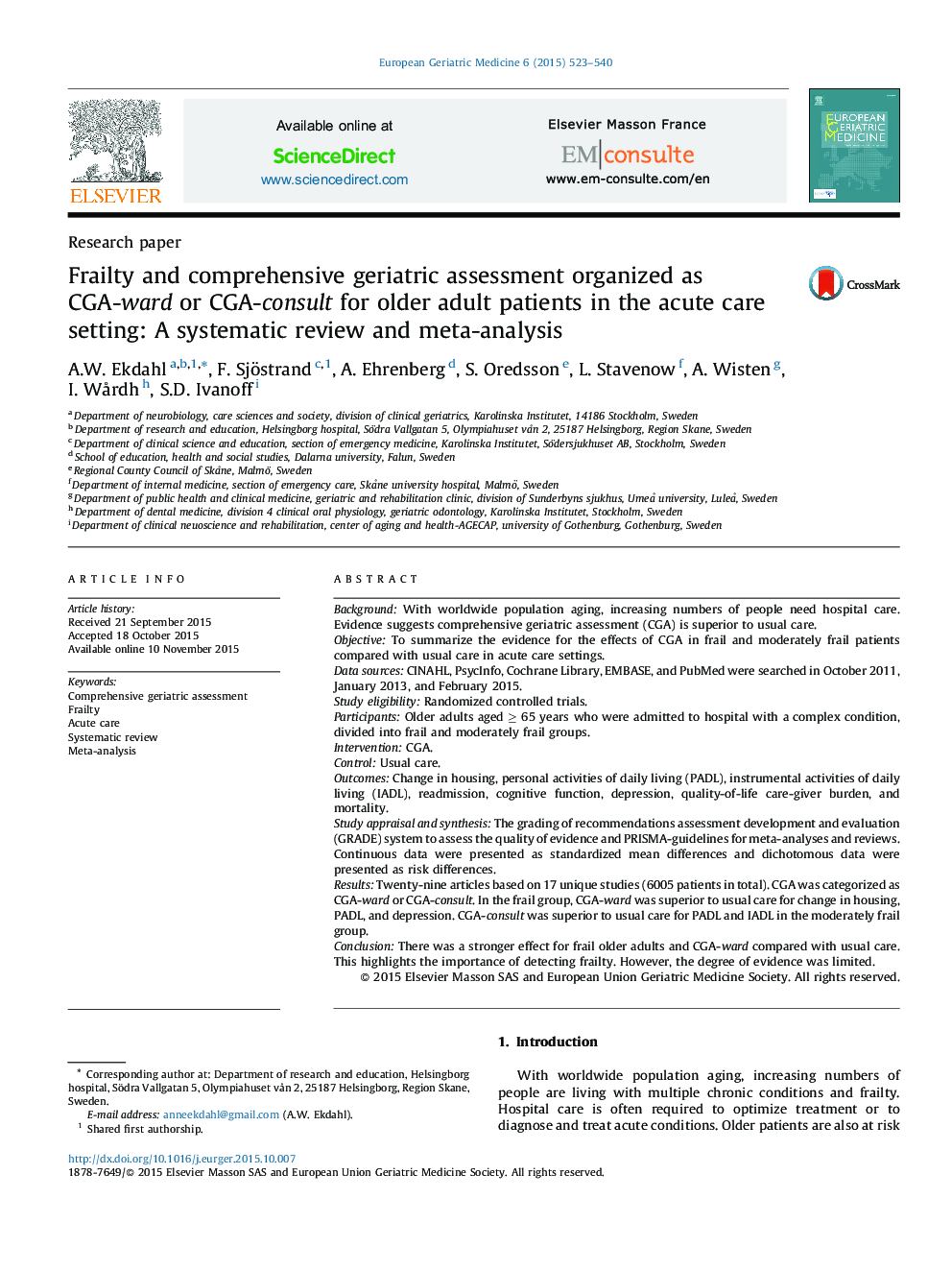| Article ID | Journal | Published Year | Pages | File Type |
|---|---|---|---|---|
| 3323905 | European Geriatric Medicine | 2015 | 18 Pages |
BackgroundWith worldwide population aging, increasing numbers of people need hospital care. Evidence suggests comprehensive geriatric assessment (CGA) is superior to usual care.ObjectiveTo summarize the evidence for the effects of CGA in frail and moderately frail patients compared with usual care in acute care settings.Data sourcesCINAHL, PsycInfo, Cochrane Library, EMBASE, and PubMed were searched in October 2011, January 2013, and February 2015.Study eligibilityRandomized controlled trials.ParticipantsOlder adults aged ≥ 65 years who were admitted to hospital with a complex condition, divided into frail and moderately frail groups.InterventionCGA.ControlUsual care.OutcomesChange in housing, personal activities of daily living (PADL), instrumental activities of daily living (IADL), readmission, cognitive function, depression, quality-of-life care-giver burden, and mortality.Study appraisal and synthesisThe grading of recommendations assessment development and evaluation (GRADE) system to assess the quality of evidence and PRISMA-guidelines for meta-analyses and reviews. Continuous data were presented as standardized mean differences and dichotomous data were presented as risk differences.ResultsTwenty-nine articles based on 17 unique studies (6005 patients in total). CGA was categorized as CGA-ward or CGA-consult. In the frail group, CGA-ward was superior to usual care for change in housing, PADL, and depression. CGA-consult was superior to usual care for PADL and IADL in the moderately frail group.ConclusionThere was a stronger effect for frail older adults and CGA-ward compared with usual care. This highlights the importance of detecting frailty. However, the degree of evidence was limited.
